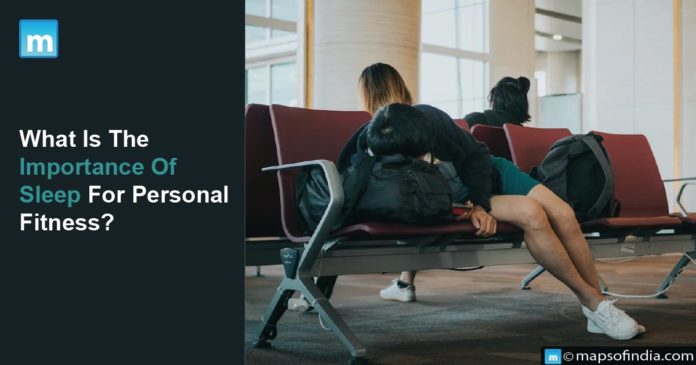Sleep is a crucial component of personal fitness that individuals often overlook. While exercise and a healthy diet are vital for maintaining physical fitness, sleep is just as important for overall wellness.
Here is why sleep is essential for personal fitness:
- Sleep is critical for muscle healing and development. The body creates hormones that help in muscle recovery and development when sleeping. Muscles may not heal effectively if they do not get enough sleep, resulting in diminished physical ability and an elevated risk of injury. This is especially crucial for athletes or anyone who physically exercises daily.
- Lack of sleep can lead to fatigue, making it difficult to exercise or perform daily activities, leading to decreased physical fitness and productivity. Additionally, fatigue can increase the risk of accidents and injuries in daily life and during exercise.
- Sleep is crucial for the immune system. Sleep is important for producing cytokines, proteins that help fight off infections and inflammation. When we don’t get enough sleep, our bodies produce fewer cytokines, making us more susceptible to illness and infection. This can lead to decreased physical fitness, as illness and injury can interfere with exercise routines.
- Chronic sleep deprivation has been linked to depression, anxiety, and other mental health issues. Lack of sleep can also impair cognitive function, making it harder to focus, remember, and learn new information. This can impact productivity and performance in both personal and professional life.
- Sleeping properly can improve physical performance, endurance, and reaction time. Proper sleep can improve our athletic performance and reduce the risk of injury.
- Sleeping adequately aids in regulating the body’s metabolism and appetite enzymes. Without enough sleep, the body produces more ghrelin, the hunger hormone, and less leptin, the appetite suppressor hormone. This might result in snacking and being overweight, affecting personal fitness and general health.
- Sleep deprivation can also lead to insulin resistance, increasing the risk of diabetes, obesity, and cardiovascular disease. Getting enough sleep can help regulate blood sugar levels and reduce the risk of these conditions.
How to improve Sleeping habit?
Improving sleep habits is an important step towards improving personal fitness. Here are some tips on how to improve sleeping habits for fitness:
Stick to a consistent sleep schedule
Even on weekends, try to go to sleep and get up at the exact moment every day. This helps to adjust your body’s internal cycle and enhance your sleeping patterns.
Develop a peaceful nighttime habit
Adopt a calming bedtime ritual to indicate to your mind that it is time to sleep. Reading a book, having a hot shower, or practising relaxing methods like deep breathing or meditation might all fall into this category.
Create a comfortable sleep environment
Make sure your bedroom is dark, quiet, and cool, with comfortable bedding and pillows. Invest in a comfortable mattress if necessary.
Avoid electronic devices before bed
The blue light emitted by electronic devices such as phones and tablets can interfere with producing the sleep hormone melatonin. Avoiding these devices for at least an hour before bedtime is best.
Exercise regularly
Exercise can help regulate your sleep-wake cycle and improve the quality of your sleep. Just make sure to finish your workout a few hours before bedtime to let your body wind down.




